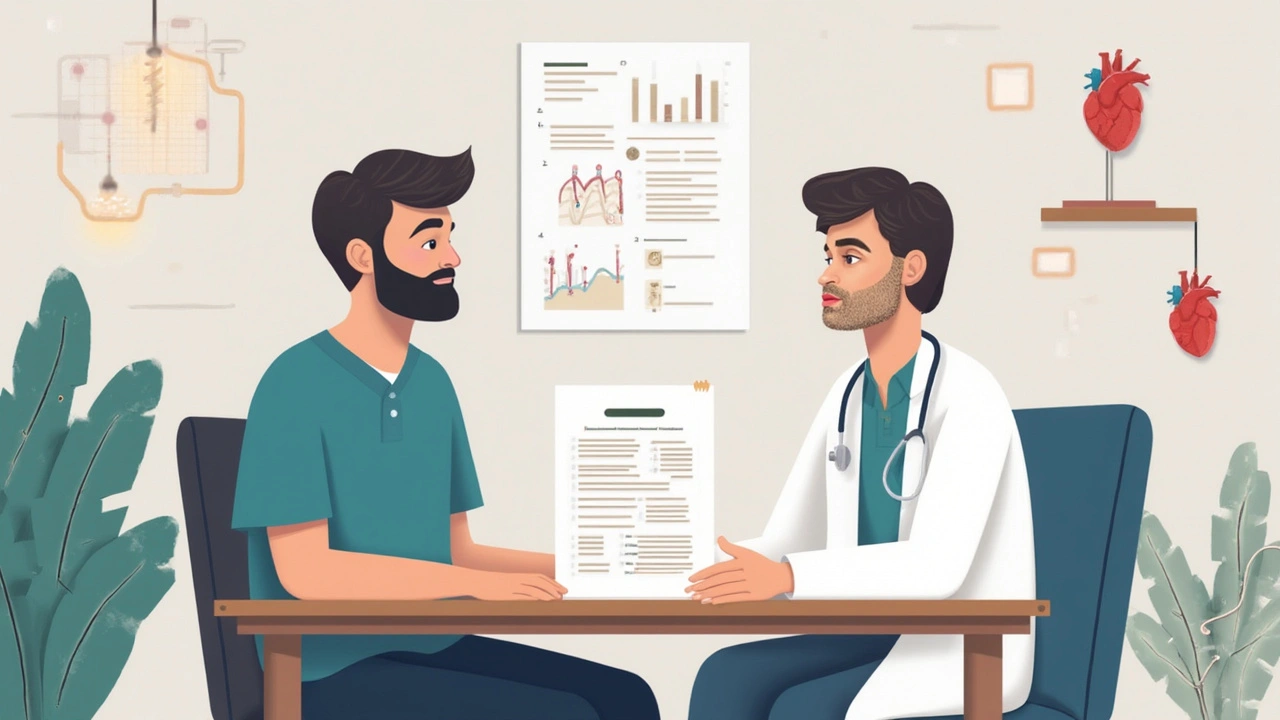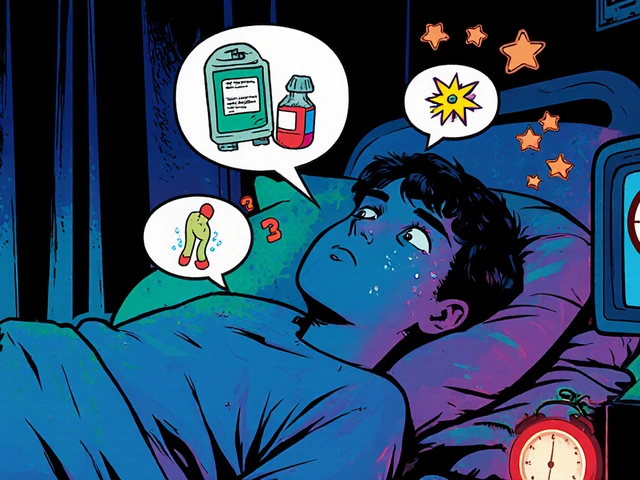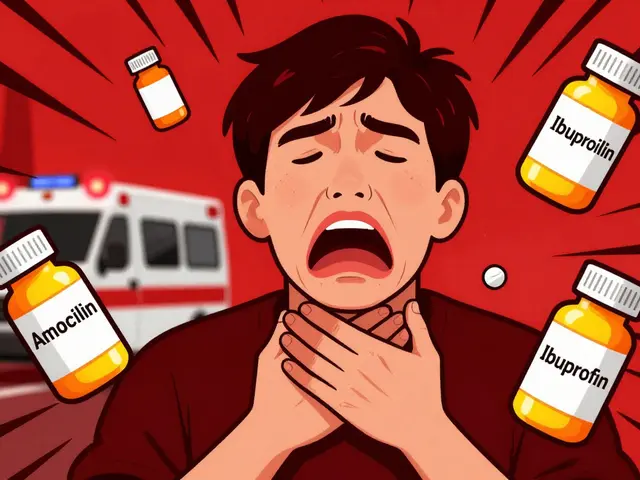
Your heart suddenly skips or flutters, maybe after you’ve climbed a flight of stairs or even when you’re just sitting still—it's like someone hit a drum in your chest, and then… nothing. Or everything. Your smartphone says your pulse is jumping around, but when you check again, it’s normal. If you’ve ignored these feelings before or searched online, you’ve probably run into gloomy stories and confusing terms. So why does talking to a doctor feel scarier than the symptom itself?
Understanding Irregular Heartbeat—What’s Really Happening Inside?
Most of us know just enough to worry. The medical term for an irregular heartbeat is "arrhythmia." It sounds daunting, but not all arrhythmias put your life at risk. Some come and go without causing harm, while others need attention right away. The problem is, the signs aren’t always dramatic. Some people feel like they’re about to faint; others notice just a weird sensation for a second. What should you be watching for?
Notice patterns in your symptoms. Most doctors ask: Does your heart race only when you’re anxious or exercising? Or do fluttering and pounding appear out of nowhere, even when you’re calm? Write down what you experience: the day, time, what you were doing, and how long it lasted. Detailed notes make things a ton clearer for your doctor—and they help you notice if there’s a real pattern.
Common symptoms tied to arrhythmia include:
- A sensation like your heart is flipping, racing, pounding, or missing beats
- Shortness of breath or chest discomfort
- Dizziness, lightheadedness, or feeling faint
- Sudden weakness or fatigue for no good reason
Knowing your family history can make a big difference too. Did your parents or siblings ever need a pacemaker, or die suddenly from heart issues? Though it’s rare, some arrhythmias run in families. Jot this down so you’re ready if your doctor asks.
Sometimes, lifestyle habits play a bigger role than you might guess. Too much caffeine, smoking, stress, or heavy drinking can throw your heartbeat off. Even certain cold medicines and supplements might cause symptoms. It’s worth listing every medication, vitamin, and even energy drink you use before your appointment.
To put things in context, here’s a table showing the frequency of arrhythmia types in the U.S. adult population, based on studies and CDC data as of 2024:
| Arrhythmia Type | Estimated Prevalence (Adults) | Typical Age at Diagnosis |
|---|---|---|
| Atrial fibrillation | ~2% (6 million people) | 60+ |
| Ventricular tachycardia | <1% | 40+ |
| Supraventricular tachycardia | ~1-2 per 1000 | Any age (most common in women) |
| Premature beats (PAC or PVC) | Very common (up to 40% of healthy adults at some point) | Any age |
Don’t get bogged down by the numbers. Almost half of healthy adults will feel irregular beats at some point, according to the American Heart Association. Catching a potentially serious arrhythmia early is what matters—and that starts with a good conversation.

Starting and Navigating the Conversation with Your Doctor
Okay, so you’ve made your appointment. Maybe you’re thinking, “What if they think I’m being dramatic? What if it’s nothing and I’ve wasted their time?” Stop right there. Doctors prefer when you bring up these concerns—seriously, they do. Heart symptoms are never something to brush aside, and your peace of mind matters too.
Before you even step into the office, get organized. Jot down the notes from earlier: specific symptoms, when they happen, and anything you might think is silly or unrelated. You’d be shocked at how many people forget the details in the moment—so give yourself a cheat sheet. If you feel more comfortable, ask a friend or family member to come with you; sometimes another pair of ears catches things you miss, or reminds you to ask the questions swirling in your mind.
Got wearable tech? Bring in your heart rate logs or screenshots. Even shaky, phone-recorded heartbeats or symptom diaries offer your doctor valuable clues, especially if you can match them up to exactly when you felt odd. The more real-life examples you share, the easier it is to pinpoint what’s going on.
Here are practical tips and questions to spark a fruitful dialogue:
- Describe your symptoms (type, timing, triggers, and what stopped them).
- Share your complete medication and supplement list (including over-the-counter pills, herbal remedies, energy drinks, and vitamins).
- Be honest about caffeine, alcohol, tobacco, or recreational drug use—this isn’t about judgment, it’s about accuracy.
- Ask, “Could my symptoms be related to stress, hormones, or lifestyle changes?”
- Find out, “What tests do you recommend, and what are they looking for?”
- Clarify, “When should I call 911 or seek emergency care if symptoms get worse?”
- If you leave with a diagnosis, ask, “Is this common, and what’s the outlook?”
- Don’t leave until you understand the next steps: Will you get a referral to a cardiologist? Do you need to wear a Holter monitor at home? Are there things you should avoid until more data comes in?
It’s surprisingly normal for doctors to test for common reversible causes before ordering the big, scary stuff like advanced imaging or spontaneous rhythm monitoring. If you feel rushed, speak up: “I want to be sure I understand everything before I leave.” Ask your phone to record the visit or request written notes—nobody remembers 100% of these details after an anxious appointment.
Let’s clear up a myth while we’re here: Arrhythmias don’t always mean your heart is weak or damaged. Sometimes, they’re just the body’s way of saying, "Hey, pay attention!" Women, especially, are more likely to have symptoms brushed off as anxiety or stress, so it’s okay to be insistent—not pushy, just honest and thorough. If you feel dismissed, don't hesitate to seek a second opinion or ask for a more specialized evaluation.
Bringing the right mindset helps. Approach the talk as a team effort with your doctor, not a pop quiz you’re trying to pass. If you’re worried, say so. If you’re confused about acronyms or test names, ask for a plain English explanation. Good doctors expect this. The better your communication, the better your care.

Following Up and Staying on Top of Your Heart Health
So what happens after that first conversation? Sometimes you get reassurance right away. Other times, you walk away with a heart monitor, a prescription, or a referral to a cardiologist. Each of these is a step closer to the answers you want.
Keeping a symptom journal isn’t just homework—it’s how doctors connect dots that don’t show up in a basic exam. Apps like KardiaMobile or even the notes app on your phone make symptom tracking easy. Document what happens before, during, and after these episodes. Did you skip breakfast? Take a new supplement? Did your smartwatch alert you, or did you just "feel" it? The more you show, the less you guess.
If tests come back normal but you still feel off, don’t drop the subject. Many arrhythmias are elusive—only showing up occasionally. One out of every six patients with intermittent arrhythmia needed more than one round of testing before getting a diagnosis, according to a 2023 review in the Journal of the American Medical Association. Trust your instincts. If symptoms persist, mention new details at your follow-up visits. Sometimes it takes persistence to catch a fleeting problem, and there’s nothing wrong or embarrassing about that.
Your lifestyle can be your secret weapon. Talk with your doctor about cutting back on caffeine or alcohol, quitting smoking, staying hydrated, and keeping your stress in check with walks, breathing exercises, or short breaks to reset. If you’re prescribed medication, take it exactly as told—and let your doctor know if you notice side effects. Don’t adjust doses or stop on your own.
Here are a few practical reminders to keep in mind for ongoing heart health:
- Stick to follow-up appointments, even if you feel better – changes in your heart might not always have obvious signals.
- If you use wearable health devices, share data regularly with your care team. Look for trends, not just spikes.
- Ask for clear instructions about when to seek emergency care. Anyone experiencing severe chest pain, sudden shortness of breath, fainting, or symptoms that last more than a few minutes should call 911.
- Don’t get sidetracked by online forums or random social media advice. Rely on your actual medical team for guidance about what matters for your irregular heartbeat.
- If your anxiety gets overwhelming, ask your doctor about counseling or therapy—emotional health goes hand in hand with your physical heart health.
Sometimes, answers are quick and easy, and you walk out with a plan to rest or make tiny tweaks to your habits. For others, it’s a longer game of sorting through data and symptoms. Don't let frustration take over; remind yourself that figuring out your heart takes time—and partnership—with a doctor who listens.
Bottom line: When you break through the nerves and talk openly, you get answers faster. And your doctor can help you catch something treatable now, not later. Next time that odd heart rhythm knocks, you’ll know exactly how to handle the conversation that could make all the difference.
20 Comments
Kay Yang
May 26 2025
Keeping a simple diary can reveal hidden patterns.
Roger Bernat Escolà
June 4 2025
It feels like the universe is playing a cruel prank on you, and the only thing that can stop the madness is a clear, calm conversation with a doctor who actually listens.
Allison Metzner
June 13 2025
Sure, the mainstream medical community lumps everything under "arrhythmia" to hide the fact that big pharma is pushing expensive monitors while simple lifestyle tweaks are ignored.
Timothy Javins
June 22 2025
Even if you think every flutter is a heart attack, most of the time it's just a harmless premature beat; don't let fear drive every doctor visit.
Rajesh Kumar Batham
June 30 2025
🫀📱 Track it, log it, and share the data – doctors love numbers more than stories! 👍
Bill Gallagher
July 9 2025
When you sit down with a physician, start by stating the exact moment you first noticed the irregular beat, including what you were doing, the temperature of the room, and whether you had consumed caffeine or alcohol that day. Then, hand over a printed summary that lists each episode in chronological order, noting the duration, intensity, and any accompanying symptoms such as light‑headedness or shortness of breath. Explain that you have compiled a medication list that includes prescription drugs, over‑the‑counter supplements, and even herbal teas, because interactions can sometimes masquerade as arrhythmias. Mention that you have already tried simple lifestyle adjustments – reducing caffeine, getting extra sleep, and practicing slow breathing techniques – and describe the impact of each change, even if it was minimal. Highlight any family history of cardiac issues, such as pacemaker implants or sudden cardiac death, because genetics can influence risk. Request a baseline ECG and ask whether a Holter monitor or event recorder would be useful to capture intermittent episodes. If the doctor suggests immediate testing, ask for a brief explanation of what the test looks for and how the results will guide treatment. Should medication be prescribed, ask for clear instructions on dosage, potential side effects, and the timeline for reevaluation. Finally, make it clear you want a written follow‑up plan that outlines next steps, appointments, and red‑flag symptoms that would warrant an emergency department visit. By approaching the conversation with this level of organization, you transform a potentially vague complaint into a concrete clinical picture that any competent cardiologist can act upon.
Rajashree Varma
July 18 2025
Great roadmap! Adding a brief note about stress levels each day can also help the doctor see if anxiety is playing a part.
Anshuman Pandey
July 27 2025
From a philosophical angle, the heart's rhythm mirrors our inner turbulence; documenting both the physiological and emotional states can reveal the hidden feedback loop between mind and organ.
Thomas Malloy
August 5 2025
Make a habit of noting the time of day each episode occurs; patterns often emerge.
Sushma Gowda
August 14 2025
When you get the test results, ask the provider to explain any abbreviations; that way you’re not left guessing what a “PVC” actually means for you.
Angie Wallace
August 22 2025
Take notes and bring them back next visit.
Doris Montgomery
August 31 2025
Honestly, most of this feels like medical mumbo‑jumbo that could be solved with a quick coffee break.
Nick Gulliver
September 9 2025
Enough with the free‑wheel advice; demand a proper cardiac work‑up now.
Sadie Viner
September 18 2025
It is advisable to confirm whether the documented episodes align with any underlying electrophysiological abnormalities, and to request a clear explanation of the proposed management plan.
Kristen Moss
September 27 2025
Don't waste time – if the doc says it's nothing, get a second opinion.
Rachael Tanner
October 6 2025
Seeing those zig‑zag lines on an ECG can be unsettling, but they also provide a vivid map to pinpoint the exact nature of the rhythm disturbance.
Debra Laurence-Perras
October 15 2025
Stay positive and keep the dialogue open; proactive communication often leads to earlier detection and better outcomes.
dAISY foto
October 23 2025
💥Remember, your heart is a powerhouse – treat it with respect, track every beat, and never settle for vague answers! 🚀
Ian Howard
November 1 2025
Think of your symptom log as a storyboard for your doctor; the clearer the narrative, the faster they can script the right treatment.





william smith
May 17 2025
Bring any heart‑rate screenshots from your phone or smartwatch – they give the doctor a concrete record instead of just a vague feeling.